The State of SEO in 2025: What Worked, What Flopped, & What’s Next
November 17, 2025
12 Minute Read

SEO in 2025 has been a trip.
Between AI Overviews, Google shaking up the SERPs, and users expecting answers faster than ever, SEO has officially entered its choose-your-own-adventure era. And if your strategy still revolves around ranking for keywords, it’s probably time for a refresh.

But here’s the good news: not everything is chaos. Some tactics did work this year. Some flopped harder than a Black Friday email with no CTA. And a few unexpected players (hello, structured data!) stepped up big time.
Below, we’re breaking down the real state of SEO in 2025 and what you can take heading into 2026.
What Worked in 2025
The SEO landscape may feel like it’s shifting under our feet, but there were definite winners this year. Below are the strategies that moved the needle this year.
Strong E-E-A-T Signals
You’ve probably heard it a hundred times: “Create helpful content.” But in 2025, it wasn’t just a nice-to-have. It was the difference between ranking and disappearing.

Google and AI engines got a lot better at filtering out fluff and favoring substance. That meant content that genuinely answered user questions, addressed pain points, and provided real value performed noticeably better. The focus on E-E-A-T (Experience, Expertise, Authoritativeness, and Trustworthiness) delivered.
Takeaway: If your content doesn’t make someone smarter, solve their problem, or help them make a decision, it’s probably not helping your SEO either. Invest in writers who know their stuff. And don’t just echo the top 10 results. Instead, elevate them.
Topical Authority
Remember the days of chasing long-tail keywords? Yeah, we’re moving on.
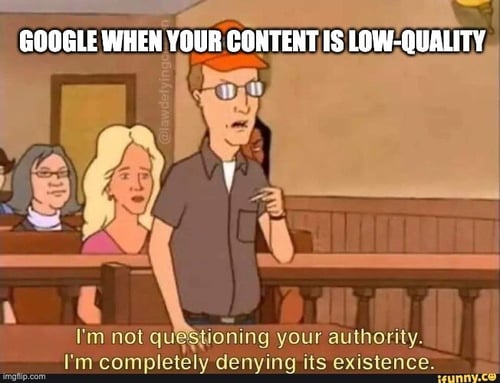
In 2025, the real winners were sites that proved they own their topic. That didn’t mean just writing one good article but clustering content around core themes and sending clear signals that your site is the go-to source for specific subjects.
Takeaway: Think like a library, not a billboard. Organize content into categories, build depth on key topics, and connect it all with strong internal linking. This helps both users and search engines see you as an authority.
Schema
With Search Generative Experiences (SGE) and AI-powered answers stealing real estate on the SERP, structured data became critical for visibility.

Brands that embraced schema markup (more on that here!) were far more likely to appear in enhanced search features and even as sources in AI-generated answers. It’s the language search engines speak fluently.
Takeaway: If you're not using schema markup, you're missing out on SERP features and AI inclusion. Make structured data part of your content publishing checklist.
First-Party Data
With third-party cookies fading into the background, 2025 rewarded the brands that stopped relying on rented data and started leveraging what they already had.
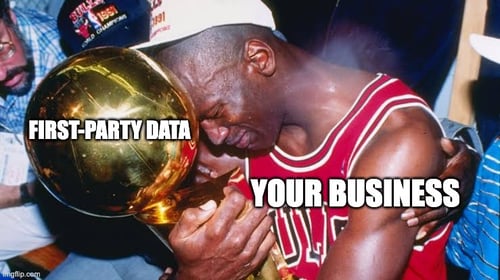
Smart SEO and content strategies were increasingly informed by first-party data: email engagement, customer behavior, CRM trends, and internal search queries. That data fed everything from personalized content to smarter targeting in both paid and organic.
Takeaway: Your own data is a goldmine, so treat it that way. Use it to inform topic planning, optimize for high-intent searchers, and personalize landing page content. This isn't just for paid campaigns anymore.
Brand Building
Here’s the thing about AI-generated results and trust signals: they favor brands people know. Even if your content is stellar, an unknown or low-trust domain has a much harder time earning placement in AI responses or being cited by search engines.
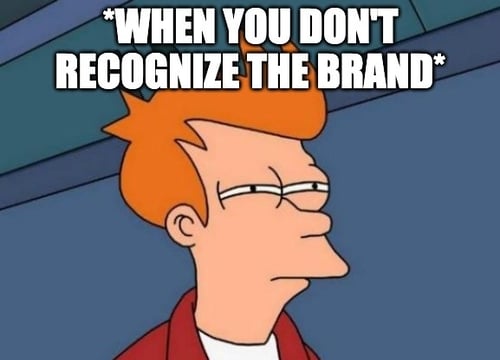
In 2025, SEO became more reputation-driven. Businesses that invested in thought leadership, earned media, positive reviews, and real community engagement saw better rankings.
Takeaway: SEO and PR aren’t siloed. Invest in brand visibility and make sure your online presence reflects authority, not just optimization.
What Flopped in 2025?
Even in a year of big wins for modern SEO, there were plenty of strategies that quietly dropped off. Here’s what didn’t work this year.
Treating Traditional Google Click‑Traffic as the Only Success Metric
The classic “rank #1 → get clicks → grow” formula is dying. With the rise of AI‑generated results and zero‑click search behaviors, relying solely on organic ranking for Google doesn’t cut it anymore.
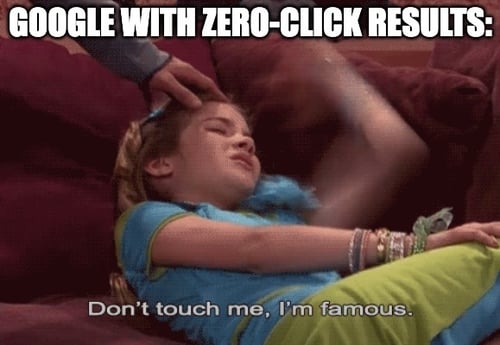
Many teams kept chasing the same old playbook (high‑volume keywords, link count, incremental updates) while the targeting landscape and metrics shifted under their feet.
Fix it: Broaden your metrics. Track AI visibility, brand citations, and answers served instead of just clicks.
Keyword-Only Content
Pages built around “X keyword + 500 words of generic content” didn’t stand a chance in 2025. With search engines and AI assistants favoring context and expertise, shallow content lost ground fast.

AI tools and modern search algorithms are significantly better at detecting thin content and rewarding pages that go deep, provide unique perspectives, or incorporate first‑party data.
Fix it: Create cluster pages, in‑depth guides, and content that answers real questions with real value.
Ignoring Zero-Click & Snapshot Search Formats
Here’s the hard truth: even if you rank #1, you might not get the click. In March 2025, only ~40.3% of U.S. Google searches ended in a click to organic results, down from ~44.2% the previous year.

With AI overviews, featured snippets, and answer boxes taking over, some brands that focused purely on clicks saw declining traffic despite good rankings. The focus on click volume ignored that users were often satisfied before clicking (or never had to click at all).
Fix it: Optimize for being seen and cited. Create content that works even when the “visit” never happens.
Fully Automated Content
AI is powerful, but treating it as a magic button for volume content backfired. Google’s crackdown on low‑value, large‑scale AI‑generated content (particularly when it lacks expertise or transparency) is real. Content lacking depth or human oversight was increasingly filtered out or deprioritized.
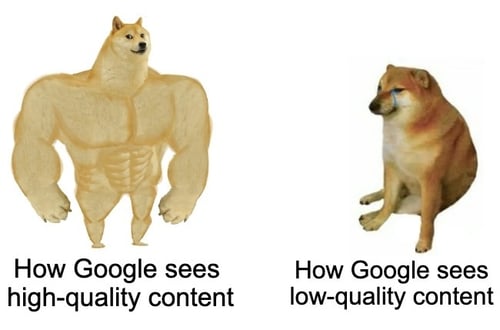
Fix it: Use AI to assist, not replace. Human expert input and authentic voices matter.
Why the Shift Happened
If SEO in 2025 feels like it got flipped upside down, you’re not imagining it. A lot of big changes converged to rewrite the rules.
Search Became More Conversational & Generative
Platforms like ChatGPT, Perplexity, and Google Gemini aren’t just returning links. Now, they synthesize, summarize, and reply like a human would.

People type or speak queries expecting an answer rather than a list of websites.
User Behavior Shifted
Users are increasingly getting what they want without ever leaving the SERP. Like we mentioned above, AI summaries and zero‑click formats are becoming more common, reducing click‑throughs to sites.
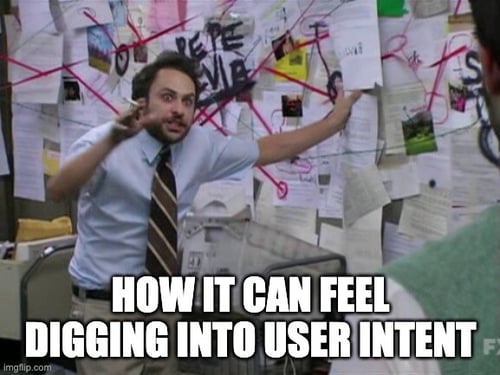
So yes, even if you’re ranking, traffic might still drop if your listing gets sidestepped by a summary box.
Search Isn't Just Google Anymore
It used to be: SEO = Google. Now: SEO = Google and Chatbots and AI assistants and voice.

With generative tech embedded across search, discovery, and conversational interfaces, the ecosystem got broader. You’ve got more search engines to show up in than ever before.
This isn’t just another algorithm shift (though there’s still plenty of those going on!). Really, it’s a structural shift. If you’re still optimizing solely for ranking #1 on traditional SERPs, you’re playing defense when you could be building for offense.
SEO Strategies for 2026 & Beyond
The next SEO chapter is here, and it’s all about adaptation, bold moves, and smart bets.
Topic Mastery & Brand Authority Over Keywords
By next year, the brands that win will be those treated as trusted topic hubs, not just pages stuffed with loose keywords.

What to do:
- Build topic clusters (more on pillar pages here) instead of isolated posts.
- Create deep, original content with unique insights and brand voice.
First-Party Data, Intent Signals, & Integrated Marketing
As cookies fade and AI search shifts more toward inference rather than keywords, having first‑party data and understanding your audience’s intent becomes a major advantage.
What to do:
- Use your CRM to map what your users really want.
- Focus on cross‑channel optimization: SEO + content + brand + UX must all work together.
- Align your content with real‑world questions your audience is asking.
AI-Augmented Content
AI tools are now part of the workflow. But the trick is human + machine. Reports show that using AI alone without human context, review, and input is one of the big fails of 2025.

What to do:
- Use AI for research and ideation, but always add human expertise and your unique brand voice.
- Optimize for long‑form, high‑value content that AI alone can’t replicate (think: unique case studies, original data, expert interviews).
Monitor AI‑driven processes and set guardrails for quality and compliance.
Multimodal, Voice, & Agent-Based Search Optimization
Search in 2026 looks different. Text, voice, images, video, and AI‑agents all merge. So traditional search may drop significantly as AI assistants become the front door.

What to do:
- Optimize for voice queries and conversational language. (“How do I…” “What’s the best… for…”)
- Include video, image, and interactive formats if your content deserves it.
- Think of how your brand might show up in an AI assistant answer, not just a search result.
Metrics That Capture Value Beyond Clicks
Clicks and rankings still matter, but they’re no longer enough. You’ll want to account for more modern metrics in 2026.
![]()
What to do:
- Track how often your brand is cited in AI/answer‑engine results.
- Use analytics to measure quality of traffic and assisted conversions.
- Set KPI frameworks that include both traditional metrics (rankings, traffic) and modern ones (answer engine citations, brand mentions, zero‑click wins).
The Biggest Takeaway: Treat Your SEO Strategy as a Living Machine
Your 2019 SEO playbook? Outdated. Your 2021 tactics? Maybe missing pieces. For 2026 and beyond, you need a strategy that can evolve continuously.
- Run small experiments.
- Review performance monthly and quarterly.
- Don’t just wait for algorithm updates. Be ready for them.
- Integrate SEO with brand, content, UX, product, and analytics teams.
If you start thinking like a brand that gets found in conversations, creates meaningful experiences, and tracks value beyond the click, you’ll be ahead.
If you don’t? You’ll be watching your competitors show up instead.
And whether you’re optimizing for AI summaries, voice assistants, or your next big content pillar, we’ve got the playbook.
Get 26% off any new service with us if you chat with Maggie before 12/31! Learn more here, and be sure to send us a message if you’ve got any follow-up questions.
Ready for some help? Tell us what's been going on:

Jon Pappas
Jonathon is the Director of Organic Search at BFO. He’s a reliable and consistent member of our team and is very detail-oriented and client-focused.
CATEGORIES
SUBSCRIBE TO OUR BLOG
Stay up to date with the latest industry best practices in digital marketing!








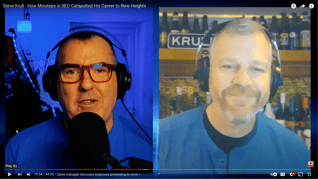



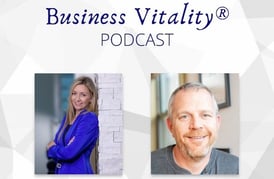

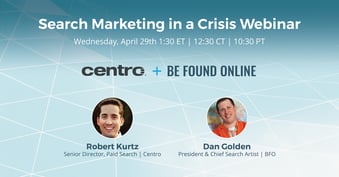

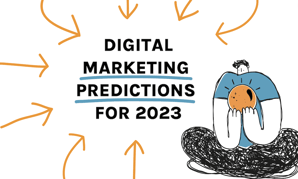
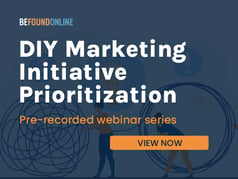
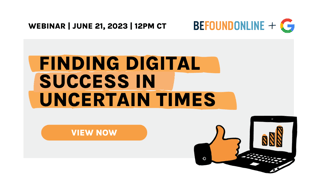
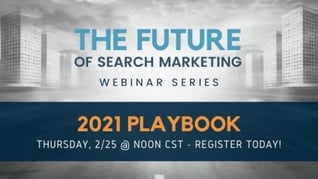
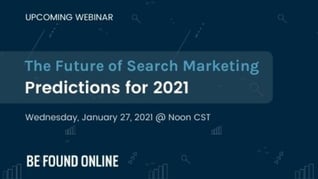

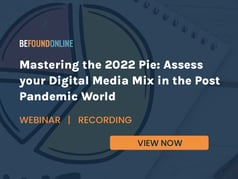
.png?width=339&height=179&name=Webinar%20Banner%20(1).png)
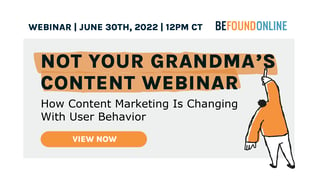
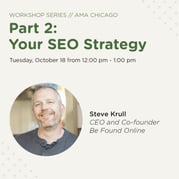

.png?width=339&height=179&name=July%20Webinar%20(Newsletter).png)
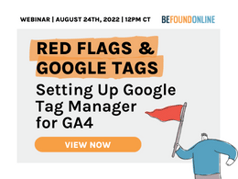
.png?width=339&height=179&name=Webinar%20Banner-April-02%20(1).png)
%20(4).png?width=339&height=179&name=Webinar%20Banner-May-02%20(1)%20(4).png)
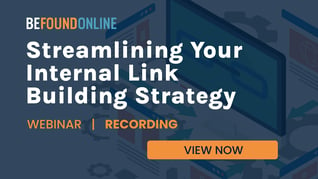
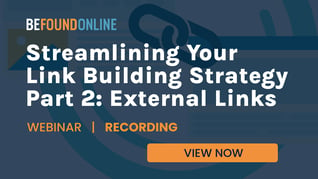

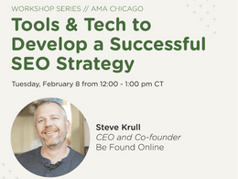
.png?width=339&height=179&name=March%202023%20Webinar%20Ad%20(autoresponder).png)
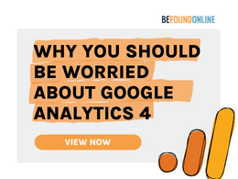
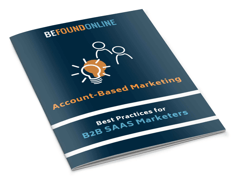
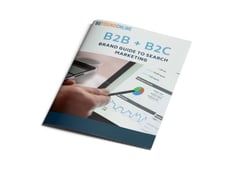
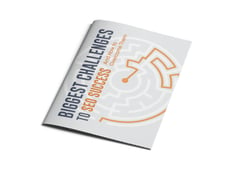
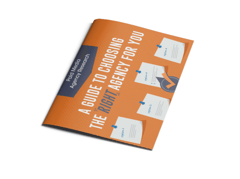
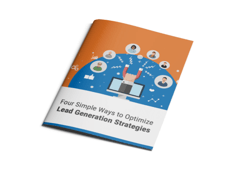
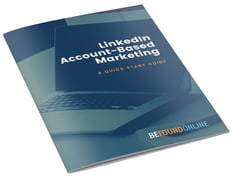
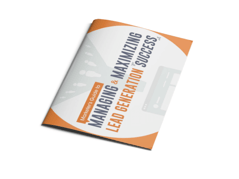
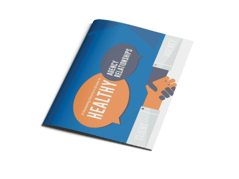
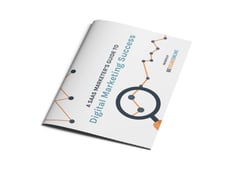
.png?width=339&height=179&name=2025%20Paid%20Media%20(1200%20x%20628%20px).png)











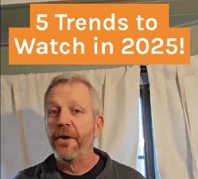
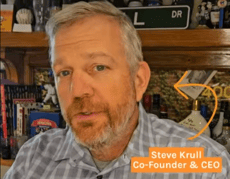






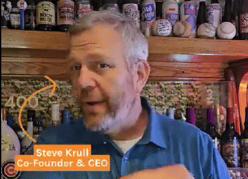

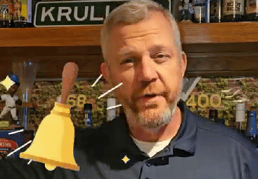







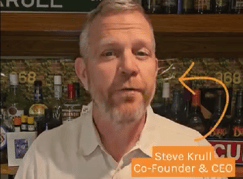







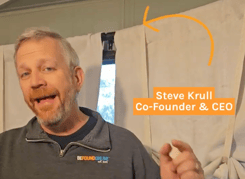
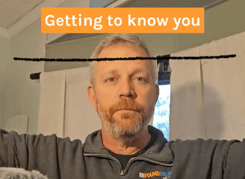

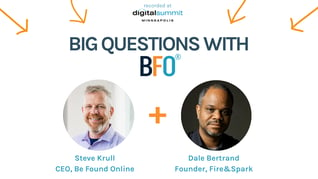
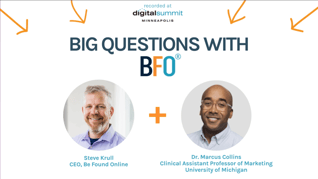

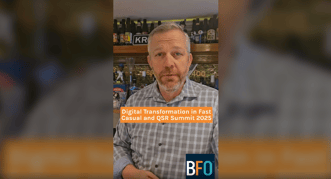

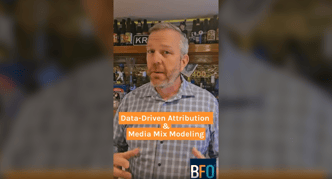


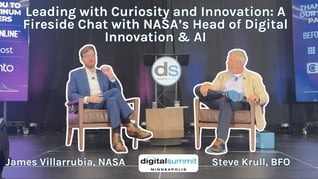




.png?width=339&height=179&name=2026%20Paid%20Media%20Ad%20Specs%20(Twitter%20Post).png)

